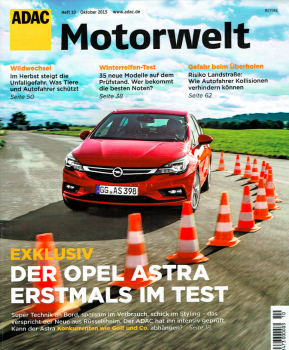
Does Volkswagen really deserve the gallows? The Dieselgate scandal started September 18, 2015. The Environmental Protection Agency (EPA) issued findings that VW deliberately installed a cheating software to escape strict emission standards for its diesel cars. Two days later, the company conceded the truth of the cheating. Volkswagen’s CEO apologized and has resigned. Nowadays, popular opinion labels Volkswagen as the worst carmaker in the world.
German are serious about their cars. As I am pretty familiar with the German culture, I find it safe to assume that German men prefer their car to their wife. If you don’t believe me, visit any German car wash on a Saturday morning and check the waiting line. I know as many Germans who wash their car every week as French who wash theirs every two years.
My dream for Dieselgate
I had a dream, the dream of German roads without a single Volkswagen (VW).
Let me share my Dieselgate dream with you. The following description is pure fiction, but based on evidence. Of course, any resemblance to reality is coincidental.
In Germany, around 9.5 million cars on the road are made by Volkswagen. “Volkswagen” (German for “people’s car”) is the market leader in Germany. In 2014, VW had a market share around 21%. If VW recalled all its cars, one out of every five cars on the German Autobahns would disappear. Remembering the rush-hour traffic between Wiesbaden and Frankfurt, I certainly wouldn’t complain, and I am pretty sure the majority of German drivers would also support this decongestion of the highways.
Following the recall of all VW cars, I could easily find a parking spot in the Frankfurt Westend neighborhood. I could even drive to any major soccer event or to the Oktoberfest in Munich. I don’t recommend the latest, as it is suggested to have a designated driver who is supposed not to drink. This isn’t really funny, especially when you’re in the middle of the largest beer party in the world.
In Wolfsburg, home of the Volkswagen headquarters, I suppose the share of Golf, Passat, and Co. is even higher. Without VW, half the city could probably be redesigned into a pedestrian zone. Imagine going for groceries to Aldi and walking home with the shopping cart!
I apologize to all Wolfsburgers reading this post, as I’ve never been in Wolfsburg. What I know from Wolfsburg is the view through the window when passing via ICE (the German high-speed train) to Berlin. My view of Wolfsburg is certainly limited!
Germany without Volkswagen would be like the US without the Super Bowl
While the German government would struggle with the loss of KFZ-Steuer (motor-vehicle tax), the sudden rise in the import of French cars would save France from bankruptcy. Renault, Citroen, and Peugeot would assume the role of the German carmakers and lower the unemployment rate in France significantly.
Car-repair shops would reconvert their mechanics from the solid VW to the less reliable French, Italian, and Japanese cars. With the increased need for creative mechanics able to deal with the European and Asian divas, economic migrants from Albania and Kosovo would fill in gaps, and Heinz Sonnendecker, my mechanic in Eltville, could eventually retire.
If Volkswagen leaves its place as the leader in middle-sized cars, Mercedes, BMW, and Porsche will step in quickly. (I don’t count Audi since it belongs to the VW group.) Of course, it is still possible that all German carmakers may collapse in the next few weeks. Maybe they cheated too! And maybe the whole story is a conspiracy from the CIA to shut down the German industry of luxury cars?
 VW Golf to be replaced by the new Opel Astra!
VW Golf to be replaced by the new Opel Astra!
At the same time, the VW Golf, Germans’ favorite car, would be replaced by the new Opel Astra. Since 1929, Opel has served as a subsidiary of the American General Motors. In its October issue, ADAC Motorwelt (the monthly magazine from the German pendant to AAA), presented the middle-class car with great marks.
And here it is again: the American conspiracy! Once the German upscale automakers were down, Cadillac, Lincoln, and Buick could take their place more easily.
No! Stop this nightmare!
No Golf anymore, but many Opel Astra? My dream started to turn into a nightmare.
All I’ve heard and read on the topic in the last weeks has denounced VW’s cheating. Honestly, how stupid must VW be to think it could successfully fool international standards? However, the scam worked for six years. Pure German efficiency, I’d say!
Nevertheless, it’s sad to see how quickly the world has forgotten the quality of VW cars.
In the United States, the fame of VW comes from the Beetle. In 1971, the Beetle was the most produced car in the world, surpassing the previous record of the Ford Model T. In the last 40 years, VW produced more than 30 million Golf worldwide, making it one of the most popular cars ever. According to a recent test by AutoBild (a famous car magazine in Germany with around 2 million copies sold in 2014), the VW Golf – Sports Edition achieved second place in the ranking of best German cars in 2014.
Why are Volkswagen cars so popular?
It may be difficult for Americans to understand why Volkswagen is so popular in Germany and Europe. Americans are used to driving large, comfy cars. High-quality and long-lasting engines are rarely the priority in the States. A German car is always well-constructed. The longer you drive one, the more you become aware of this.
VW are cheap enough to attract a lot of consumers, but they are also fun to drive, efficient, and practical. The image of Volkswagen is one of quality, comfort, and style. A few weeks ago, I was the passenger in a Volkswagen Touareg (no, not a diesel engine!). I complimented the car’s owner: I had forgotten how nicely the doors close in a German car! They are heavy but close quietly. Furthermore, I had more than enough space for my legs, and my right leg was not wedged against some part of the tire.
A German Dieselgate? Yes, but look at your energy consumption, America!
Admittedly, an estimated eleven million VW cars worldwide (and around 500,000 in the States) are equipped with the emissions-cheating software. Nevertheless, all Volkswagen cars still remain outstanding, high-quality engineered products. According to an article from Wirtschaftswoche and a poll from market researcher PULS, 54% of Germans are still interested in buying a Volkswagen, while only 11% have decided not to buy this brand anymore.
Dieselgate certainly will accrue side effects that damage the image of products “Made in Germany.” Nearly 67% of Germans think that other carmakers are also involved in similar scams for emissions. Last May, ADAC pointed out how significant the differences between the announced emission values and their measures were for manufacturers besides Volkswagen as well.
My first car was a Volkswagen Polo. I was 20 years old. When I turned 27, I got my first company car: an Audi A4. At age 30, I choose my first family car: a VW Passat. I have only good memories of these cars. I never had a breakdown, and they were fuel-efficient and fun to drive.
In the US, I drive a Honda Odyssey, which is a practical car for the family but an incredible gas-guzzler. In comparison to pick-up trucks, one of America’s favorite cars, my Honda still has a low fuel consumption. When I get groceries, I wonder how much plastic American producers use to pack almost everything. According to the World Bank, America is the second largest producer of greenhouse gases after China. Of course, what Volkswagen did in scamming emissions equipment was not okay. But I am sure the company will fix this problem. It’s just a question of time.
I don’t need a new car right now, so I won’t be buying a Volkswagen car in the next few months. But Volkswagen stocks are on my list—I believe in this company.
What do you think? Never again Volkswagen or still in love with your VW? I would love to read your comments!
Photo credit by © Ezume Images





I agree with Holger.
The rise of the Diesel engine in Europe since the end of the eighties was suspect to me. I think that chancellor Kohl touted “the Diesel is clean” whilst imposing – late compared to the U.S.A. – the catalytic exhaust pot to gasoline cars was to meet the wishes of VW, the Deutschland AG syndrome. I guess that stricter limits on carbon-particulate matter would have advantaged Peugeot. They make Diesel engines – like Mercedes-Benz – since the fifties. That Diesel was OK for nitrates was also a mystery for me, as typically the combustion is with too much air hence allowing the nitrogen and oxygen to combine. For gasoline cars the mix must be regulated in order that the oxygen meets exactly the gasoline quantity in the cylinders. In those times Diesel had a favorable aura because consuming less, hence preserving the crude oil reserves and causing less pollution at the oil extracting side.
Unfortunately our governments and the green lobbies began talking over and over of the CO2 exhaust, as if the green house effect were the only pollution aspect. The sales of new Diesel cars in Europe topped at 50% and more, except in Switzerland and maybe Scandinavia. In Wallonia small Diesel cars were even subventioned and big gasoline cars punished by the government. Almost no gasoline car is registered for companies, because the CO2 exhaust is in Belgium a criterion for not deducing all car costs as professional costs.
What I do not understand is that VW tried to sell Diesel cars in the U.S.A. where the authorities do not gaze at the CO2 exhaust. VW has excellent gasoline cars.
All car makers optimize more or less their cars for the consumption and pollution tests. That Volkswagen went so far as to detect hiddenly that a test is ongoing, shows only that the Diesel engine cannot succeed in the test and have high performance. Why target high performance in a country where the maximal speed is severely limited? Further, with electronic controls everywhere in an engine, indeed the output of every kind is steered by software.
Walter, thank you for reacting to Holger’s comment. A good point is also to point out that VW tried to push Diesel cars while VW has also excellent gasoline cars. I am not an engineer but a marketing professional. From a marketing point of view, it could have been a smart move to position VW as a German brand with excellent diesel cars.
Disclaimer; I used to work for Volkswagen in Wolfsburg in the early 90’s and have driven VW cars since (i
ncluding Audi) and own VW shares.
For decades Volskwagen sold us the idea that diesel engines were now “green” – i convinced colleagues of mine in the US to buy Passat Diesel and Q5 TDi. Now VW admits it was all a sham. I understand that emission standards in the US (driven by California) are tough and may be very hard to achieve however cheating was not the way to tackle the issue. Car companies can hire lobbyists to petition state governments etc. but installing a software “cheat” takes it to a new level. From what i read VW spent billions on a new diesel engine which could not meet CA fuel emission standards so instead of writing off billions of R&D VW engineers decided to change the software instead. Now VW will pay billions in fines as well as billions more to fix the software and probably billions more in lawsuits. I personally feel VW needs to be punished and those engineers and managers responsible need to go tot jail- that would show the world that the German government takes this kind of corporate behavior seriously and will hold companies responsible. A new outside CEO and board is also required. Just my 2 cents.
Ärger nachvollziehbar! Who agrees with Holger?
It is true that the US is with China one of the countries that pollutes the most, but hopes come from upcoming meetings in Paris, where the US and China should commit to become cleaner and less contribution to global warming.
Regarding VW’s scandal, it reminds me of Toyota and their problems. Such mistakes take two to three years to recover. Now, I am very happy that the Environmental Protection Agency found that out. It shows their competence.
However, I then wondered how independent this organization actually is. Are they so good? It is interesting that they found something like that when nobody else found it. Did maybe somebody tell them? I am just asking since EPA is based in the US where pollution is outrageously high compared to other so-called developed countries and where in many states rules to protect the environment are primarily driven by economic interests.
I also noticed that no carmaker worldwide is criticizing VW much. Why so? Should maybe EPA have a deeper look at other car manufacturers?
Anyway, I recommend EPA to have a try at the air contamination in the Washington metro. Every second day, the air is not breathable because of some electrical wires burning with some burnt plastic smell. This morning the smoke was so intense that all people around me were coughing.
Let’s hope some congressman was also on the red line coughing with me. Maybe it will help change something for the better.
A lot of valuable thoughts, thank you Jean.